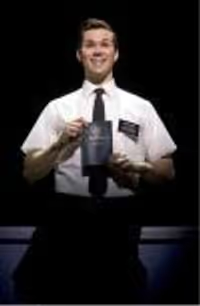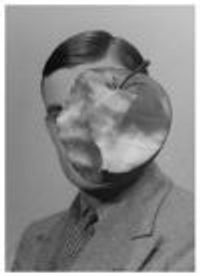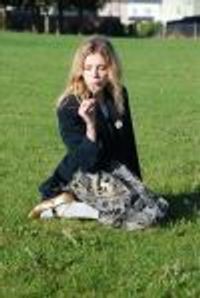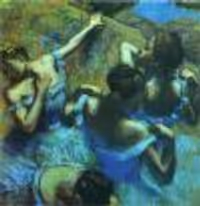HAiR: The Intellectual Conversation Thread
#25re: HAIR: The Intellectual Conversation Thread
Posted: 8/24/09 at 1:18pmWell, I think that's both the beauty and one of the conundrums of revivals. But Hair is in a category inhabited by only a few shows in that it was written about the time and place in which it was originally performed, which adds another layer to that.
#26re: HAIR: The Intellectual Conversation Thread
Posted: 8/24/09 at 1:22pm
I enjoyed the revival. Hair was the first "adult" musical (non-Disney, non-Julie Andrews...) that really grabbed me and I used to listen to the OCR over and over again as a teen. As a result, I think I would have been hard-pressed NOT to enjoy the revival.
That said, my husband walked out wondering if all the interaction and the crazy fun meant that most of the younger people completely missed (or dismissed) any of the more serious statements such as the anti-war sentiment or the social commentary on hypocrisy of "Easy to Be Hard" or the statements around racism or environmentalism etc. So much of the commentary on this board *has* been around, uh, the nudity and the audience interaction that it was hard for me to completely dismiss his observation as completely false.
snowskittle
Leading Actor Joined: 1/10/09
#27re: HAIR: The Intellectual Conversation Thread
Posted: 8/24/09 at 1:24pmI wonder if anything about it was thought to be intellectual at the time?
#28re: HAIR: The Intellectual Conversation Thread
Posted: 8/24/09 at 1:31pm
HEST, I tend to agree with your thoughts.
However, I'm sure MANY of the original audiences reacted the same way. You can HEAR the messages and even believe in them without taking action or it changing you in any way.
In general, I feel that the young audience members view theater as something to be "a part of" instead of experience. All the talk about SD events, and FB contacts affect how they feel about the show. Add to it the importance of whether or not they will sit in good seats for interaction. (And don't get me wrong, Will Swenson laying on top of me -- as much as one can in a theater seat -- ADDED to the performance and the experience, but I wouldn't have felt 'cheated' if it happened to someone else.)
#29re: HAIR: The Intellectual Conversation Thread
Posted: 8/24/09 at 1:36pm
The show wasn't revived because people kept arguing that it wasn't relevant. During this latest scuffle in Iraq the show became "relevant" again and then when this production made its move towards Broadway and then Obama got elected, people started saying the show was no longer relevant once more but it will always be relevant. I know it is for me. I had a friend, the kind of guy who would be the leading man character in one of those high school chick movies, die 2 and a half years ago in Iraq and this show touches on all the foolishness that brought along his death. War has always been young people fighting the war for the old white men in their protected room. The yellow shirt scene speaks to me as a survivor of abuse. Every time I watch it, my breath stops because it is so real to the truth.
Then there is Don't Put it Down. I love that the flag ends upside down. I do not support this country. I do not support a country who does things I'm against. Who sends young men and women, like my friend, out to die just to make sure their oil stores stay full. Who forces children to say the pledge of allegiance in all public schools and those children don't even know what a pledge of allegiance is. Who fights tooth and nail not to give its subjects what they need to survive like health care and food and advanced educations and housing.
The fact is I've been called a hippie since long before I knew anything about Hair. I wear my hair long, I put on whatever clothes I feel comfy in, I pursue any and all things that I feel will invigorate the earth, all I want to do is help, and I believe in love and being one with nature.
#30re: HAIR: The Intellectual Conversation Thread
Posted: 8/24/09 at 1:38pm
I wonder if anything about it was thought to be intellectual at the time?
Probably not. I think that's something that comes with historical perspective, after the impact is obvious, if you're literally talking "intellectual." Granted, the fact that it was a huge departure from the form seems pretty immediate, but I wonder that, too; how much of the idea of it as a revolution was present to people who were seeing it, and how much of that only came later? Although, knowing what I do, my gut assumption would be that it was more about the sheer immediacy of the piece than, "Wow, this is going to change musical theater forever." I think that's so built-in now that we kind of take it for granted. I'm sure some people thought that because historians and critics were part of the picture, too, but overwhelmingly I would guess it was visceral. And, see, this is the kind of stuff I would love to hear from people who were there, because I wasn't even born.
Hest, I think your husband is right. I don't want to generalize because I don't believe the generalization to be true, but in some cases, I do think he's right. Unfortunately.
#31re: HAIR: The Intellectual Conversation Thread
Posted: 8/24/09 at 2:52pm
rwlevin, I find HAIR to be patriotic in it's own right. I don't see the Tribe Members not loving their country but more so angry at where it is being steered. Angry of not having a voice. It is one thing that I think speaks out to the audiences today.
Flesh FAilures (my absolute favorite closing number of any show)Is a wake up call, followed by a plea to change.
#32re: HAIR: The Intellectual Conversation Thread
Posted: 8/24/09 at 3:09pm
In general, I feel that the young audience members view theater as something to be "a part of" instead of experience. All the talk about SD events, and FB contacts affect how they feel about the show. Add to it the importance of whether or not they will sit in good seats for interaction. (And don't get me wrong, Will Swenson laying on top of me -- as much as one can in a theater seat -- ADDED to the performance and the experience, but I wouldn't have felt 'cheated' if it happened to someone else.)
I think this is partly true, but at the same time are people seeing the show 50 times to get their hair played with? If they are I feel very sorry for them, but this kind of nonsense will always exist.
This show seems to have such an effect on young people (myself included) because it got me in the know about Broadway Impact, and going out to fight much like the characters in the show.
#33re: HAIR: The Intellectual Conversation Thread
Posted: 8/24/09 at 3:13pm
What I feel is one of the most intriguing aspects of this revival is that now I feel a suitable amount of time has passed that we can assess how the counter-culture of the 60s has affected America, and how time affected those who participated in the counter-culture. And the audience goes in and finds there's a bit of unintended dramatic irony that was definitely not part of the original production when it opened; how many of the tribe members would give up their hippie lives to become suburbanites, the cores of nuclear families? How many would eventually become the things they protested in the 1980s? How many voted for Reagan, or became stockbrokers, or CEOs? How many would become part of a new set of problems facing America? Or how many would find that their ideas of free love were poisoned by HIV?
Audiences going into the Hirschfeld today know all of the possible futures for the Tribe. But the Tribe does not.
That's why there's a bit of darkness in this revival, I think... it's felt particularly strongly in the scene immediately AFTER the trip (which is a dark sequence anyway). Claude has to face reality more than ever before, and all of sudden the Tribe's ideas and faith in "yipping up the sun" seem painfully naive. And at the end of the day, even the members of the Tribe aren't as full of love as they would like to say they are, as we see when Woof gets turned down rather coldly by both Crissy and Dionne.
#34re: HAIR: The Intellectual Conversation Thread
Posted: 8/24/09 at 3:29pmSo well said. I agree 100%. I think that's one of the things that makes it so moving; we know what's going to happen to these people. They don't. And that's so sad. We feel sorry for them, in a way, I think, and also sad to know that ultimately, they won't really succeed. It's hard to watch them be up there so full of life and love, while having the knowledge of the possible things that may happen to them in the future, even past the risk of being killed at war. I find that that's a really powerful aspect of a lot of plays that were written to be contemporary and then brought back decades later. There's a dramatic irony that wasn't written into them, but becomes quite dark and tragic.
#35re: HAIR: The Intellectual Conversation Thread
Posted: 8/24/09 at 3:30pm
What I don't understand about HAiR is what Manchester, England is about. It certainly isn't about Manchester, England.
(a city I'm very familiar with)
#36re: HAIR: The Intellectual Conversation Thread
Posted: 8/24/09 at 3:38pmI've always interpreted it as Claude just wanting to be something he's not and somewhere he isn't. As well as being subversive (saying he'd rather be British instead of American would have, of course, caused his parents to go nuts).
#37re: HAIR: The Intellectual Conversation Thread
Posted: 8/24/09 at 3:38pmIt's much more about Claude than it is about the city. Look at the lyrics -- he wants to be somebody else; not just a Polish-American kid from Queens. I also feel like like he's sort of trying to empower himself with that song, especially the way he always comes back to it at moments throughout the show.
#38re: HAIR: The Intellectual Conversation Thread
Posted: 8/24/09 at 3:48pmI assumed it was Claude's alter ego of sorts
#39re: HAIR: The Intellectual Conversation Thread
Posted: 8/24/09 at 3:50pm
Well, he the one he tries to or wishes he could adopt, until the tribe calls him out on it.
That's kind of what I meant about him trying to empower himself, though; I think it's an alter ego in his mind that kind of... helps him get through, in a way.
#40re: HAIR: The Intellectual Conversation Thread
Posted: 8/24/09 at 3:58pmClaude states it in the show, Diane Paulus has talked ab out it: Claude wants desperately to be invisible. Hanging with the hippies hides him from mainstream society, pretending to be a brit, hides him from his reality.
#41re: HAIR: The Intellectual Conversation Thread
Posted: 8/24/09 at 4:55pm
Thanks all. I've just bought the cast album and hope this production makes the leap across the pond.
I was thinking Liverpool would have been the city most associated with the Tribe's culture in the 1960s UK. However, reading your comments, I can see that Tribe culture wouldn't necessarily be what he was looking for.
#42re: HAIR: The Intellectual Conversation Thread
Posted: 8/24/09 at 4:58pm
Claude is torn between so many competing factors - his family, his country, his friends - that he's been unable to construct or realize his own identity. Hence the safety he finds in invisibility and assimilation. This becomes especially apparent (and poignant) in the second act - until "Where Do I Go?", Claude is (intentionally) upstaged by Berger's charisma, but the second act brings his conflict and uncertainties to the forefront. I love the moment when "What a Piece of Work Is Man" segues into "How Dare They Try." It's heartbreaking when all of Claude's illusions and hesitations come crashing down around him, and he knows that choice (one type of conformity for another) is imminent.
I was talking with a friend about the show, and he felt that this revival lacked the important political element essential to Hair's significance. Essentially, he argued that the production hadn't explicated the political resonance of "peace and love" as a philosophy. He went on to say that the reverence with which the cast and much of the audiences approached the show precluded some of its veracity, commodifying the show as a product for entertainment and consumption. I'm don't agree that it's a meretricious revival missing its substance, but he's getting at what Hest and Emcee are saying - even if the material's there, a lot of the audiences are missing the more serious aspects. People are allowing themselves to commodify the piece, absorbing the most accessible elements and not taking the time to look deeper into the show's message. The politics of it especially. That being said, the Broadway Impact offshoot is interesting (and awesome) because the message of the show is being applied in an active, practical way that inspires fans to join a movement. So even if some of Hair's finer points are being missed, the show and its themes have nonetheless generated activism and awareness through its most accessible and on the surface themes of peace/love/freedom.
Craww
Broadway Legend Joined: 12/13/06
#43re: HAIR: The Intellectual Conversation Thread
Posted: 8/24/09 at 5:01pm
I wonder if anything about it was thought to be intellectual at the time?
That question forgets the distinction between "intellectual" and "intellectualizing".
Any discussion that announces its intention towards the "intellectual" is probably going to skew more towards the latter.
AndAllThatJazz22
Broadway Legend Joined: 11/8/08
#44 HAIR: The Intellectual Conversation Thread
Posted: 8/24/09 at 5:57pm
I'm reading the posts on this thread and a lot of them are actually mildly (and unintentionally) offensive. Why is it such a bad thing to have fun and talk about silly things like Gavin Creel's dog, understudies, fun songs, audience interaction stories, ect...? Are we really supposed to apologize for having a thread where people can kick back and talk about a show that they really admire? Who is to say that people posting 'the silly stuff' don't see all the 'smart stuff' that HAIR (or HAiR...whatever you want to call it) has to offer? On the BWW board, people have a tendency to think that if something is fun...it's bad.
I'm willing to participate in this thread as much as I can because I agree with the idea that HAIR has a lot to offer other than nudity and cast interaction. I enjoy talking about the deeper aspects in HAIR. It's very hard for me though, because despite knowing this show back and front...I still haven't seen it. That day will come. My plans to go to see HAIR are almost final and I'll be able to participate in this thread even more...but there is no reason criticize people for having a little bit of fun. HAIR has lots of different elements to it that are easy to catch, and one of them is being joyful to be joyful. Why should anyone feel guilty for having fun?
-Danmeg's 10 year old son.
#45 HAIR: The Intellectual Conversation Thread
Posted: 8/24/09 at 6:06pmI think you should go back and read some of the stuff it sounds like you missed in the other thread, because all of that stuff is addressed -- there's nothing wrong with having fun, it's not bad, etc. -- and it seems silly to rehash it all again. When I brought up the disparity I was not suggesting that those having fun (a group in which I count myself, mind you) "don't see" the smart stuff; I was just saying I'd love to be able to discuss more of it; and it seemed to both not fit in with and get lost in the current thread. There's no reason for this to become an "us versus them" thing.
#46 HAIR: The Intellectual Conversation Thread
Posted: 8/24/09 at 6:28pm
No one was saying that you couldn't discuss the antics and actors. But whoever decided to start this was tired of more thoughtful conversations NOT developing on the other threads. There was NO insult intended.
Just questions and talking.
#47 HAIR: The Intellectual Conversation Thread
Posted: 8/24/09 at 6:32pmExactly. Thank you.
#48 HAIR: The Intellectual Conversation Thread
Posted: 8/24/09 at 6:32pmDon't you worry Jazzy, I don't believe anyone was insulting us. Like everyone said, there's nothing wrong with it, we just apparently needed it separated.
#49 HAIR: The Intellectual Conversation Thread
Posted: 8/24/09 at 7:08pm
Are those posts really any more offensive than everyone who DOESN'T want to talk about Gavin's dog feeling alienated from the other Hair thread?
"I wonder if anything about it was thought to be intellectual at the time?"
Any discussion that announces its intention towards the "intellectual" is probably going to skew more towards the latter.
Well, in the other thread, people said that they wanted a chance to discuss the show- content-wise, not who got groped when. somethingwicked picked the current thread title. I think Hair discussion thread is a bit less pretentious and more to the point.
But as whether or not Hair was supposed to have intelligent content- I believe that in 1967/68, even the strung-out hippies could recognize there was meaning to the show beyond getting high and getting naked- specifically the anti-war message, which I honestly don't believe resonates as much now.
how many of the tribe members would give up their hippie lives to become suburbanites, the cores of nuclear families? How many would eventually become the things they protested in the 1980s? How many voted for Reagan, or became stockbrokers, or CEOs? How many would become part of a new set of problems facing America? Or how many would find that their ideas of free love were poisoned by HIV?
And how many ended up on street corners after all the other hippies moved back into relatively mainstream society and left them behind? I remember reading an interview with Will Swenson where he theorized that George Berger was probably the type that did end up homeless, because he couldn't re-adjust. I think it was on Broadway.com back when it was in the park.
Wanting life but never knowing how
Videos









